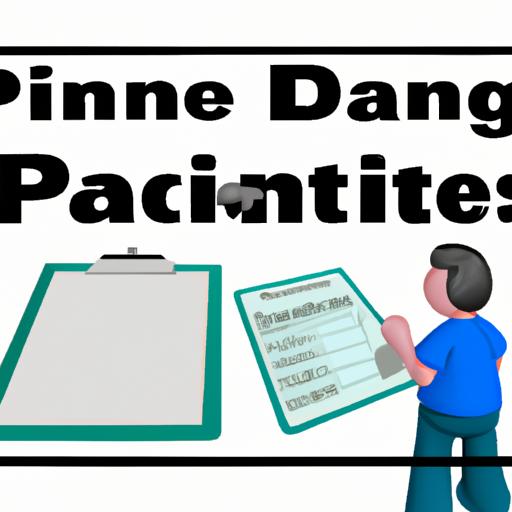Introduction to Enforcing Parenting Time in Arizona
When it comes to ensuring the well-being of children, parenting time plays a crucial role. In Arizona, parents have legal rights and responsibilities regarding the time they spend with their children. However, conflicts may arise, leading to challenges in enforcing parenting time orders. In this article, we will explore the steps you can take to effectively enforce parenting time in Arizona, ensuring the best interests of your child are protected.

Understanding Parenting Time Orders in Arizona
What are Parenting Time Orders?
Parenting time orders, also known as visitation orders, outline the specific schedule and arrangements for each parent’s time with their child. These orders provide clarity and structure, helping parents fulfill their roles and maintain a healthy relationship with their children.
Differentiating Parenting Time and Legal Decision-Making
It’s important to understand that parenting time and legal decision-making are separate components of custody arrangements. While parenting time refers to the physical time spent with the child, legal decision-making involves the authority to make important decisions regarding the child’s welfare, such as education, healthcare, and religious upbringing.
How Parenting Time Orders are Determined
In Arizona, parenting time orders are established based on the best interests of the child. The court considers factors such as the child’s age, relationship with each parent, their physical and emotional needs, and any history of domestic violence or substance abuse. By prioritizing the child’s well-being, the court aims to create a parenting plan that fosters a healthy and nurturing environment.

Steps to Enforce Parenting Time in Arizona
Enforcing parenting time orders can be challenging, especially if the other parent fails to comply. However, by following these steps, you can take proactive measures to ensure the enforcement of parenting time:
1. Familiarize Yourself with the Parenting Time Order
Carefully review the parenting time order to understand the specifics of your visitation rights. Note the designated times, locations, and any additional conditions outlined in the order. This will help you assess whether the other parent is in violation of the agreed-upon schedule.
2. Document Instances of Non-Compliance
Keep a detailed record of any instances where the other parent fails to comply with the parenting time order. Include dates, times, and specific details of the violations. This documentation will serve as evidence when seeking enforcement through legal channels.
3. Communicate with the Other Parent
Open and effective communication is essential in resolving conflicts related to parenting time. Reach out to the other parent and express your concerns regarding the non-compliance. Try to find an amicable solution that prioritizes the child’s well-being and upholds the parenting time order.
4. Mediation and Alternative Dispute Resolution Methods
If direct communication does not yield satisfactory results, consider pursuing mediation or alternative dispute resolution methods. A neutral third party can facilitate discussions and help both parents find mutually agreeable solutions. Mediation often proves successful in resolving conflicts and avoiding the need for court intervention.
5. Seek Legal Assistance and File a Motion with the Court
If all attempts to enforce parenting time fail, it may be necessary to seek legal assistance. Consult with a family law attorney experienced in Arizona’s child custody matters. They can guide you through the process of filing a motion with the court to enforce the parenting time order. The court will then review the evidence and determine appropriate actions to ensure compliance.

Tips for Successfully Enforcing Parenting Time in Arizona
While navigating the enforcement process, consider these tips to make it more effective and beneficial for all parties involved:
1. Maintain Open and Effective Communication
Continuously strive to maintain open lines of communication with the other parent. Clear and respectful communication can help resolve conflicts and reduce the need for legal intervention. Focus on the child’s needs and work collaboratively to find solutions that prioritize their well-being.
2. Plan and Organize Parenting Time Schedules
Create a detailed parenting time schedule that outlines the agreed-upon dates, times, and locations for visitation. Keep the schedule accessible to both parents, ensuring everyone is on the same page. This proactive approach minimizes confusion and reduces the chances of non-compliance.
3. Create a Supportive Environment for Transitions
Make the transition between households as smooth as possible for the child. Establish routines and rituals that help them adjust to the change in environment. Encourage open communication with both parents and assure the child of their love and support during these transitions.
4. Seek Professional Help for Co-parenting Issues
Sometimes, co-parenting challenges may require the assistance of professionals. Consider seeking counseling or attending co-parenting classes to improve communication and cooperation. These resources can provide valuable insights and strategies for navigating complex parenting dynamics.
Conclusion
Enforcing parenting time in Arizona is crucial for maintaining healthy relationships between parents and their children. By understanding parenting time orders, documenting violations, communicating effectively, seeking alternative dispute resolution methods, and, if necessary, involving legal assistance, you can ensure the enforcement of parenting time. Remember, prioritizing the best interests of the child and fostering a supportive co-parenting environment are key to successful enforcement.






